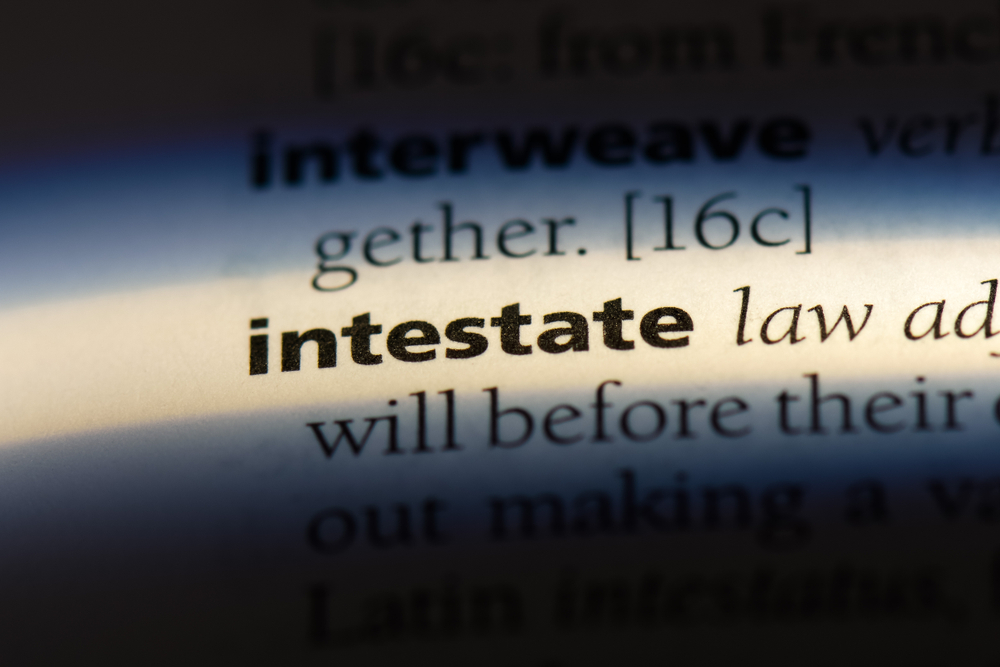

Legal Insight. Trusted Advice.
Latest Newsletter
What Happens If You Die Without a Will?
Jul 19, 2023
Last Will and Testaments determine who gets an individual’s assets upon death. Generally, people can use wills to pass their estate to whomever they wish.
Although state laws impose some restrictions, such as preventing married people from disinheriting their spouses without consent, testators can distribute their assets to chosen individuals, such as family, friends, stepchildren, and godchildren, as well as to charities.
Those who die without a will — in other words, who die intestate — cannot distribute their money and possessions according to their unique wishes. When this happens, state laws take effect to determine who receives the estate.
Intestacy Laws
When people pass on without a valid will, state intestacy laws determine who will acquire any assets that did not transfer outside of probate. While laws vary by state, they often provide that an estate goes to a deceased person’s spouse and children.
In New York State, the law provides that if a person passes intestate, the property is distributed based on who the living relatives are and their relationship to the Decedent (the person who died). If the Decedent has a spouse, and no children, then the spouse inherits everything. If the Decedent has children, but no spouse, then the children inherit everything. If the Decedent has a spouse and children, then the spouse inherits the first $50,000 plus half of the balance and the children inherit everything else. If no spouses and children survive the individual, other family members, such as parents, siblings, nieces, nephews, and cousins, receive the estate. For those who die without any surviving family, the property will go to New York State.
Non-Probate Assets
Even when people die intestate, they might have assets that transfer without a will. These assets transfer outside probate, the court-supervised proceeding that authenticates a will.
Wills do not apply to non-probate property unless individuals designate their estate as a beneficiary. (Non-probate assets bypass the court process and go directly to your beneficiaries.) Non-probate assets include certain real estate with survivorship rights, IRAs, insurance policies payable to a named beneficiary, and pay-on-death accounts.
For instance, if a person owns property with a partner as a joint tenant with the right of survivorship and dies intestate, the partner will retain the property. Naming a person as a beneficiary on an account or policy allows an asset to transfer without a will.
Reasons Why People Die Intestate
Though many use wills to distribute property, individuals might not have a will in place when they die for several reasons. They might never have created a will. Or, they attempted to form a will, but the court deems it invalid.
In some cases, the probate court might find that a will is invalid because the testator did not follow the requirements to create a valid will. For example, they might have lacked proper witnesses when executing the document, neglected to identify beneficiaries, or failed to sign it.
In other cases, a person might challenge the will. The challenger could assert that the testator lacked the mental capacity to make the will or that someone exerted undue influence over the decedent.
The Benefits of Wills
For those who die without a will, state laws typically distribute assets to close family. Although these statutes can protect spouses and children, they do not account for individuals’ unique wishes. People who want to leave assets to those not recognized by their state’s intestacy laws or want to make charitable donations could benefit from executing a will.
Individuals can also make specific bequests in a will, leaving special gifts to individuals. Suppose a grandmother wants to pass a treasured necklace down to her favorite granddaughter. In that case, she could make a specific bequest to her granddaughter in her will.
Comprehensive Estate Planning
While wills have many benefits, for many, they are just one part of a more extensive estate plan. To learn more about creating a estate plan for transferring your assets when you pass, speak to the Estate Planning Attorneys at Kommer Bave & Ciccone LLP.
Attorney Advertising


